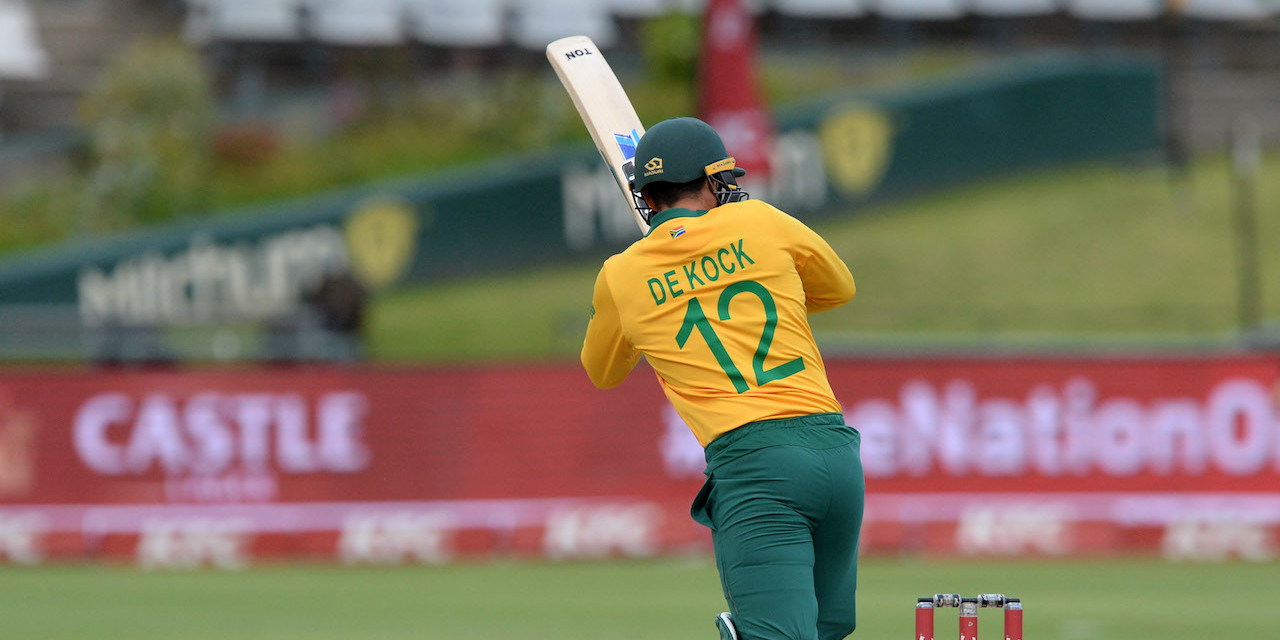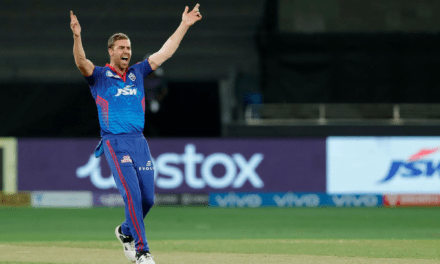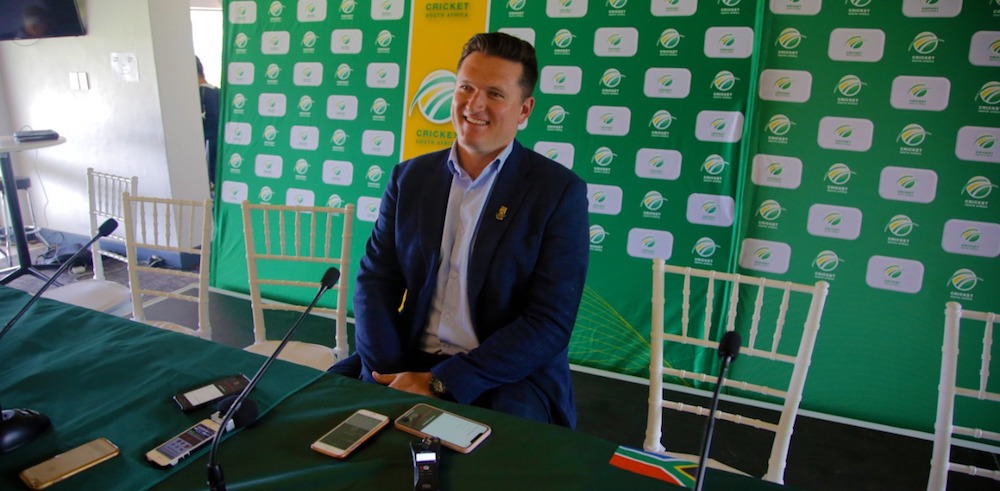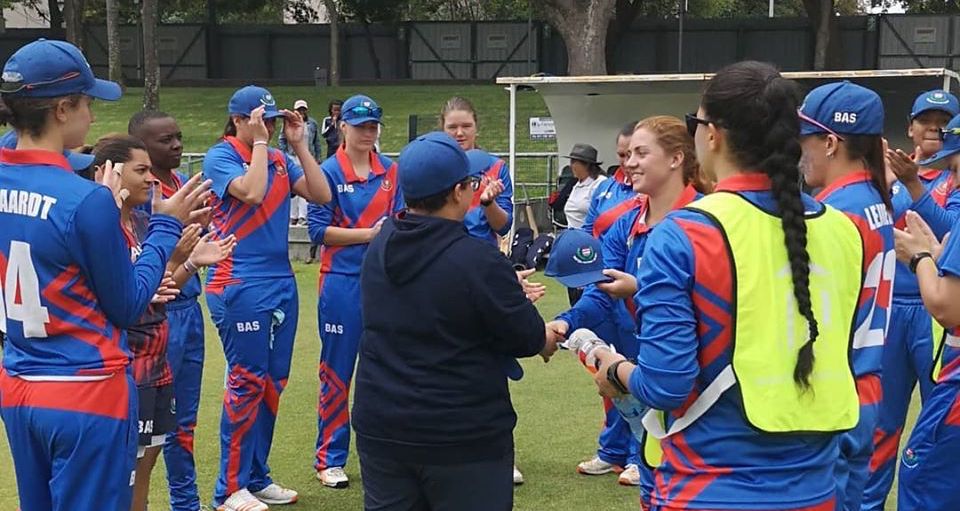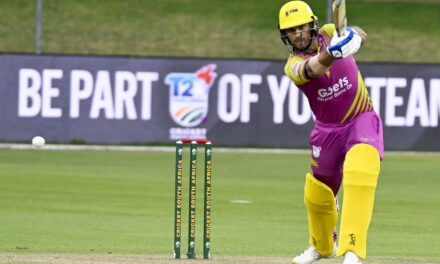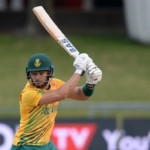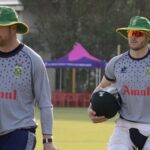The ODI series between England and the Proteas has come to a close, with honors even at 1-1.
Regardless, both teams had their moments. South Africa began in promising fashion, and England would emphatically rebound in the very next game to set up a decider. However, rain had the final call, bringing about a rather anticlimactic finish.
For the Proteas, the main highlight was the mere fact that multiple players were able to front up and perform.
During the last game, Quinton de Kock, the experienced keeper-batter, made a fluent, unbeaten 92 before the weather delay.
It was his first major contribution in this series, but it’s been a watershed year.
He opted to quit Test cricket for more family time, and it seems to have worked out quite well.
“Yeah, I think it’s nice to get out there and score runs for the guys. We’ve had a bit of time off since my last series, so it’s nice to spend some time out in the middle. It’s always satisfying – whether or not I’m scoring quickly, it’s always about helping the team.”
Once again, a relatively minimalistic approach proved to be instrumental for the left-hander.
He found his range relatively later in his innings, and would smoothly accelerate. It may have been a missed century, but it was another routine day in the office.
“The wicket had a bit of swing and movement, so it was just a matter of soaking the pressure. 50 overs is a long time to bat, so I have to remain strong in my position. Putting away the bad balls and staying strong in defense was the game plan.”
This series did present a unique challenge, as England had the likes of Reece Topley, David Willey, and Sam Curran all in the side. Topley was a genuine threat, as he had taken 9 wickets in the last 2 games against a formidable Team India. Willey and Curran were excellent complements – they may not have been very quick, but they generated plenty of lateral movement to trouble the South African batters.
“It’s tricky. I can’t remember when I last played a team that had three left-arm seamers swinging it all over the place. Before the series we thought that it might happen, and we did some preparation for it. I wasn’t caught off guard.”
Going back to the cricketing workload debate, this series was overshadowed by veteran England allrounder Ben Stokes announcing his ODI retirement after the first game.
Stokes would later bring to light the difficulties of being an all-format cricketer, and de Kock would soon shed light on the same topic.
His departure from the Test side may have given him more downtime, but at the moment that isn’t quite the case.
The Barbados Royals recently recruited him during the CPL draft, and that will be his next cricketing assignment after the conclusion of the current tour of England.
“Well, it hasn’t freed up my calendar, at least for not this year as I’ve been roped in to play in a couple of leagues. So, I’ve got time to do that now. But that’s my own consequence, and I’m happy to do it. It’s a sacrifice but I’m at an age where I slowly but surely need to think about where I want to be in my career. As long as I’m able to do it at my own pace, there shouldn’t be a problem.”
“It’ll start getting tough for players. Three formats is a lot of cricket. More games are expected to happen in a calendar year. If players feel they can do it, they can decide for themselves. It’s a personal decision at the end of the day. When you’re young, you can play all three formats and get through the early part of your career. The older you get, the body doesn’t always cooperate like it did previously.”
In addition, the ODI format has been subject to criticism as of late. With Test cricket providing the classic, attritional battle and T20 providing the glitz and glamor, ODIs seem to be neither here, nor there. But the recently completed two ODIs between the West Indies and India as well as the games between Ireland and New Zealand are definitely suggestive that 50-over cricket isn’t as vapid as some may perceive.
“There’s a bit of a gray area there. I think the game is doing well for itself at the moment. There’s a future for it [ODI cricket] and there will be more World Cups coming. Honestly, I’d love to win a 50-over World Cup. There’s so much to play for.”
Last, but never the least, de Kock has underlined a need for a measured means of preparation. International assignments are continuing to pile up, but maintaining a cool head will be instrumental when it comes to staying on top of things.
“We’re all trying to make an impact – that’s what we’re here for. It doesn’t matter how many formats you play. It’s key for us to play these games especially given that there’s a T20 World Cup coming up later this year but then again, there’s also a 50-over World Cup coming up next year. Things are happening very quickly, but we plan on taking things step by step. Our main focus was to play well as a team. It’s always moving, as we need to prepare for what’s coming up next.”
Now that his focus is exclusively on white-ball cricket, de Kock aims to maximize his potential and deliver in crunch situations. With a wealth of experience and expertise under his belt, his consistency will be principal to the Proteas’ batting progress.

